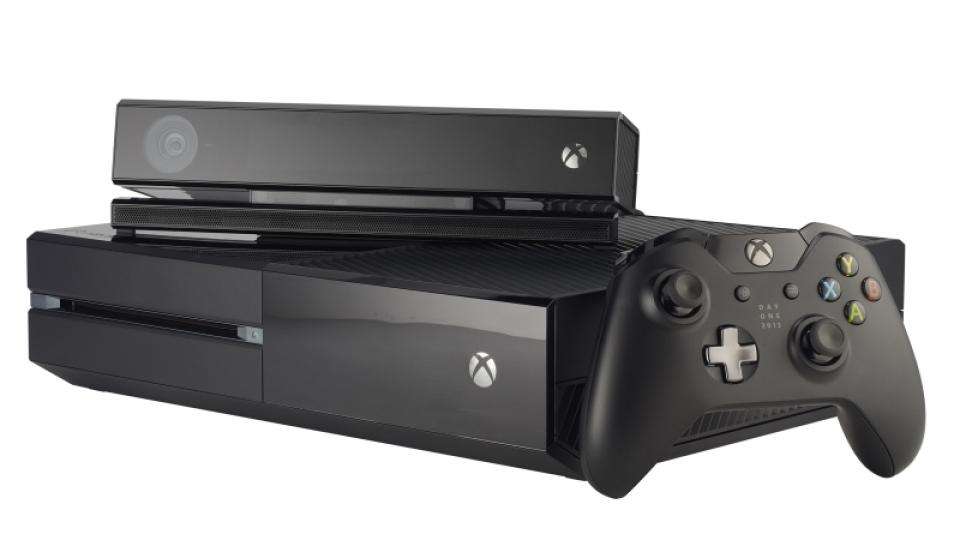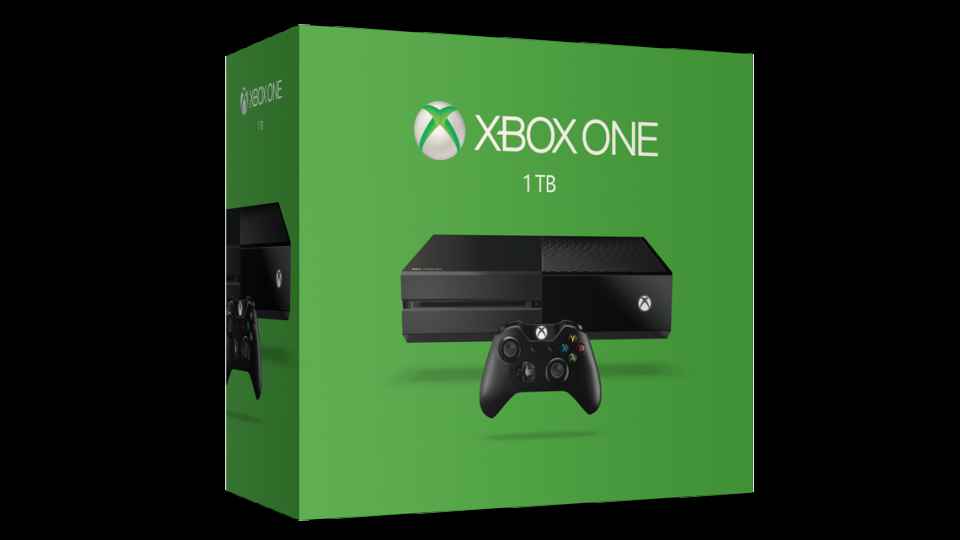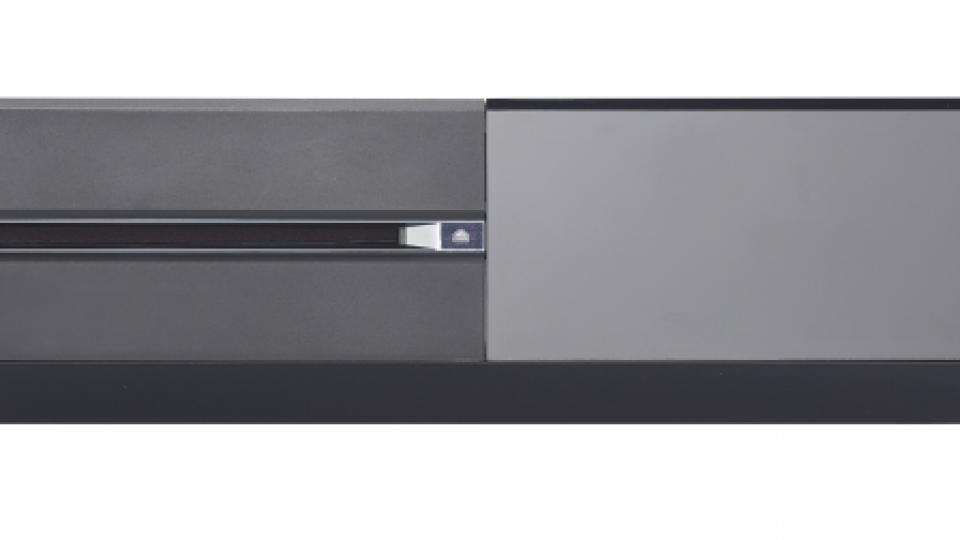Update: The original Xbox One has been usurped by the Xbox One S – a slimmer, iteration of the console with a 4K Blu-ray player. You can check out our review of that device over here . In a nutshell, the Xbox One S is an update, rather than an out-and-out sequel, to the Xbox One. You’ll be able to play all Xbox One games with it, but with the addition of HDR support and an in-built 4K Blu-ray player. It’s also pleasing on the eye, with a 40% reduction in size over the (rather bulky) original Xbox One.

If you want to wait for a fuller upgrade over the Xbox One, you’ll have to wait until the tail end of the year. That’s when Microsoft has said it will launch the Xbox Project Scorpio; its 4K, VR-enabled machine. You can read more about what’s been announced so far of Project Scorpio over here . We've also got a collection of the best games currently available for Xbox consoles here .
Carry on reading below for Seth Barton’s review of the original Xbox One.
Xbox One review
Let's put its rocky reception behind us, the Xbox One has come on leaps and bounds since then and today is arguably the equal of its better-selling competitor. It has a better range of exclusive titles, a brand-new interface that does away with Kinect entirely and the best remote gaming technology around. Yes it lags behind its PS4 rival in terms of raw graphics power, but the Xbox One is still a great console. As it's now past its second birthday, and with some the 'New Xbox One Experience' as the new dashboard is officially known now available, I've taken the opportunity to revisit the original review for a frank reassessment of where the Xbox One sits today.
Originally launched amid a fanfare of additional features, Microsoft always wanted the Xbox One to be more than just a games console. in retrospect that looked like folly, but there are a number of those features that have remained potentially useful, such as the HDMI passthrough socket, while others have been skilfully integrated, such as game streaming to Windows 10 devices,
I've pitted the two next-generation consoles against each other in a separate article, but here I'll be putting the machine under the microscope to see how Microsoft has turned the Xbox One around from potential disaster to serious contender.

The Xbox One is now sold without its divisive Kinect peripheral
XBOX ONE DESIGN
There's no escaping it; the Xbox One is huge. It dwarfs the PlayStation 4, as well as both previous-generation systems, and could rival some AV amplifiers for the space it will take up underneath your TV. The angular lines, lack of physical buttons and combination of glossy and matt plastics give it an imposing, almost monolithic appearance.

Simple. Understated. Massive.
The design gives the internal components plenty of room to breathe; after the notorious Xbox 360 Red Ring of Death issue, Microsoft has taken no chances with the Xbox One when it comes to heat. An oversized CPU heatsink and fan, positioned directly below a massive exhaust vent, ensure the console doesn't overheat even after hours of continuous gaming. It's barely audible when gaming, something I can't say of its slender rival.
Our one sticking point is that it does make a constant low hum when sat in its 'Instant On' mode, which I could hear when sitting in a very quiet room. For more on its standby modes and power usage, see Interface .
XBOX ONE SPECS
After Microsoft revealed it was using semi-custom AMD Accelerated Processing Units (APUs) for the Xbox One, Games consoles have never looked closer to desktop PCs in terms of hardware. The two quad-core Jaguar processor modules in the Xbox One, which each run at 1.75GHz and are paired with 8GB of DDR3 memory, should be significantly easier to program for than the PowerPC-based CPU used in the Xbox 360.
Plenty of space inside. Image courtesy of iFixit - because I wasn't brave enough to open up our console
Sony has taken a similar approach, also opting for an eight-core Jaguar APU and 8GB of RAM for the PS4, but both companies have made their own adjustments to AMD's reference design and taken wildly different approaches to graphics memory. The Xbox One relies on 32MB of fast-access ESRAM to quickly buffer textures into the slower DDR3 memory, which according to developers is more complex to program than the PS4's faster GDDR5 RAM.
This has led to an ongoing resolution and quality disparity between the two consoles in most multiplatform games. In general the PS4 runs game at a Full HD 1,920x1,080 resolution, while the Xbox One uses a slightly less detailed 1,600x900 resolution. It's not a dramatic difference, but the fussy will be able to notice it.
Not the most convenient place for a USB port if you'll be putting your Xbox One in a tight TV cabinet
The slot-loading Blu-ray optical drive allows developers to use bigger textures, increasing detail in games without needing to ship multiple discs. However, games aren't read directly from the disc; they must be installed to the 500GB internal hard disk; and with retail games approaching 50GB in size, it won't be long until that disk is filled.
While the PS4's hard disk can be swapped out by you at home, getting to the Xbox One's disc isn't for the faint-hearted. However, by plugging in a USB hard disk with 256GB or more space you can expand the internal storage with ease. Note that the Xbox formats the disc, so you can't continue using it as external storage for a PC.
The Xbox One automatically saves your game progress to both the console and to the cloud, so you can access your saves from other consoles. You can do this without Xbox Live Gold, unlike on PS4 which requires PlayStation Plus.
XBOX ONE PORTS
In order to avoid spoiling its minimal front face, Microsoft moved all the ports to the rear and left-hand side of the Xbox One. There are two HDMI ports; one to output video to your TV and a second to receive pictures from an external source - most likely a TV set-top box (see Xbox One TV and OneGuide ). There's also a digital optical S/PDIF to output surround sound to older AV receivers and sound bars.
The HDMI input is perfect for your Sky or TiVo box, but is too laggy to feed a PC or other games console into
There are two USB3 ports on the rear, as well as a third on the side of the console. I'd have rather seen some front-facing ports for convenience but it's not a huge problem for most. You'll also find the proprietary Kinect port and an IR blaster input at the back. The Xbox One can control your set top box, to change channels and the like; this is usually be done with the Kinect, which has its own powerful IR emitter, so the IR blaster is simply a backup for those without a Kinect, or for where the setup isn't practical.
You have the choice between wired Ethernet and wireless 802.11n Wi-Fi for getting online. It's pretty essential to have one or the other these days, for console and game updates, if not for actual online play.
XBOX ONE CONTROLLER
The Xbox 360 controller was widely regarded as one of the best controllers ever made, so Microsoft didn't been change the formula too drastically for the Xbox One. The controller has the same offset analogue stick layout, four face buttons, two triggers and two shoulder buttons, but the start and select buttons have been replaced with menu and multi-tasking buttons respectively.
The smooth textured plastic creates plenty of grip and the contoured shape comfortably fits your hands
Despite being similar to its predecessor, numerous little changes make a world of difference. The new four-way directional pad is much more precise than the 8-way 360 D-pad, which was arguably its weakest feature. Individual rumble motors in the new 'impulse triggers' add force feedback directly to your fingers. A smaller dead zone and greater resistance to movement make the analogue sticks feel incredibly responsive.
The Micro USB port can't charge the AA batteries, but plugging it in will save battery power
The battery compartment is now recessed within the controller, rather than protruding outwards as it was with the Xbox 360. Microsoft has opted for AA batteries rather than a built-in rechargeable pack, and these can't be charged via the micro USB port so you'll want to buy the optional Play-and-Charge battery pack to avoid constantly buying replacements. The Xbox Dashboard now shows you how much battery power you have left in the player one controller - unfortunately additional icons aren't added as subsequent controllers are paired with the console.
The original controller required an optional headset adaptor if you wanted to plug headphones directly into the controller. Unlike the PS4, which has a standard 3.5mm audio jack that will work with just about any wired headset. The adaptor had its upsides, with controls to mute the microphone and adjust the volume, but I'm glad to see the rejigged controller has a straightforward 3.5mm jack. PC gamers can plug the Xbox One controller into their computer via the supplied USB cable and use Microsoft's official drivers to play PC titles as well.
Overall, the controller feels superior in almost every way, which is a major achievement given the 360 pad's pedigree. I narrowly prefer the Xbox One's controls, but the PS4 controller levels things up with its more convenient built-in battery.
